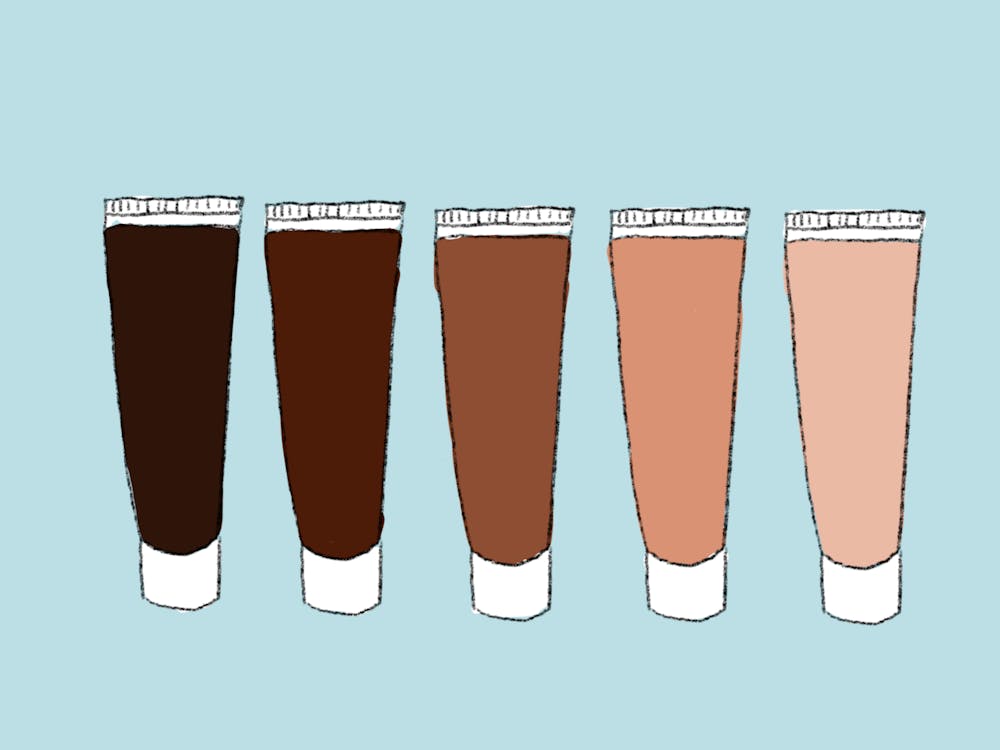The recent protests following the murder of George Floyd by four Minneapolis Police officers have focused on the urgent need to end the police brutality and violence directed at Black Americans. Yet the movement has encouraged activists to demand change and expose systemic racism and white supremacy in areas beyond the police.
One of these areas is the makeup and beauty industry.
Sharon Chuter, Founder and CEO of UOMA Beauty, started her makeup company after feeling excluded from the beauty industry as a Black woman. On Episode 37 of the Habits and Hustle podcast, she talks about her experience walking from beauty hall to beauty hall, asking if they had anything for her skin tone, only to be met with a “no.” Although she was a beauty executive, she recalls, “I was working for brands and I couldn’t use 95% of their products.”
UOMA Beauty has a range of 51 shades of foundation and collections like “Black Magic,” “Carnival,” and “Afro. Dis. Iac.,” that tell the story of different cultures rather than conform to a “one size fits all” beauty standard. Their team reflects their mission of inclusivity: 58% Black, 83% people of color, 17% white, and 75% female.
Brands like UOMA and Rihanna’s Fenty Beauty have championed inclusion since their conception. On the other hand, companies that don’t make enough inclusive shades of foundation and don’t feature enough Black models and creators, in turn, make their Instagram statements in support of Black Lives Matter feel empty and performative. Companies like Olay and Neutrogena have posted #BLM support on their Instagrams, yet sell skin whitening products on their Malaysian e-commerce websites— seemingly promoting an ideal that fair skin is more beautiful.
Chuter noticed another layer of hypocrisy from major beauty brands. While they have been making PR statements in support of Black Lives Matter and inclusivity, they lack in representation of Black voices in leadership roles. For this reason, Chuter started an instagram campaign @PullUpForChange, calling on beauty brands to publicly release the amount of Black people they have hired and promoted to the executive level. She called upon consumers not to buy from their favorite brands unless they released their statistics within 72 hours.
In addition to transparency, @PullUpForChange is demanding that brands with inadequate Black representation make their plans for how they intend to rectify their corporate culture public and “level the playing field.”
Dozens of beauty brands responded, including Tarte, Sephora, and Kylie Cosmetics. Even brands outside the beauty industry responded, like Milk Bar. Perhaps the success of the campaign is that instead of immediately cancelling or boycotting the brands for their lack of representation, the campaign celebrates transparency and concrete plans for change. Boycotting only happens when a brand is not transparent about their hiring practices and their need to do better.
A week after launching the campaign, Chuter posted a video recapping the campaign's progress and outlining the next steps. She assured the campaign's 113,000 followers that they are making real change, as she participated in company’s town halls and strategy phone calls. She called upon her followers to continue recruiting people to comment on their favorite brands’ posts, asking them to #PullUpOrShutUp.
Chuter ended the video by saying, “We’re not begging; it is our right to know.”







